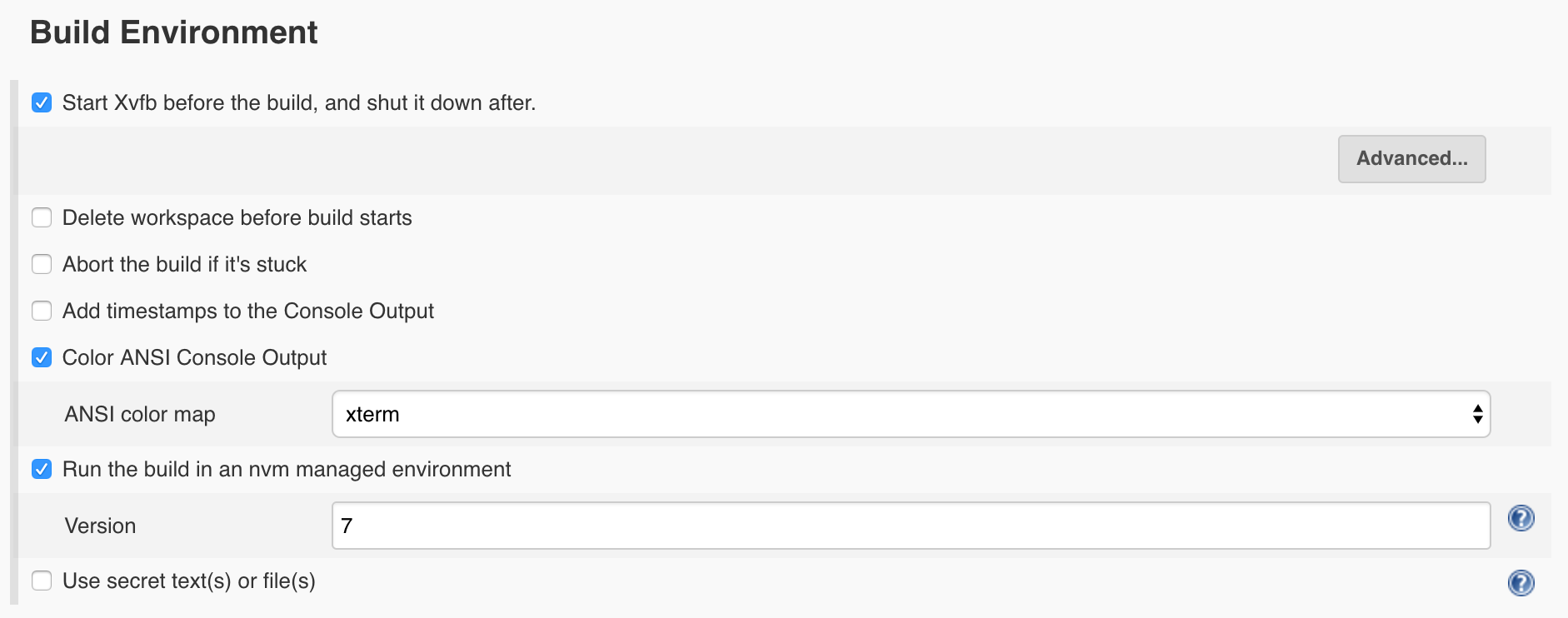
- #Jenkins promotee specific job software
- #Jenkins promotee specific job code
- #Jenkins promotee specific job windows
If you are using the Promoted Build Plugin, you will have access to the following environment variables. Promoted Build Plugin Environment Variables If CVS is configured to check out the trunk, this environment variable will not be set.įor Git-based projects, this variable contains the Git hash of the commit checked out for the build (like ce9a3c1404e8c91be604088670e93434c4253f03) (all the GIT_* variables require git plugin)įor Git-based projects, this variable contains the Git url or )įor Git-based projects, this variable contains the Git branch that was checked out for the build (normally origin/master) If you have more than one module specified, this won't be set.įor CVS-based projects, this variable contains the branch of the module. When this variable is set, PATH is also updated to have $JAVA_HOME/bin.įor Subversion-based projects, this variable contains the revision number of the module. If your job is configured to use a specific JDK, this variable is set to the JAVA_HOME of the specified JDK. This is the number you see in the "build executor status", except that the number starts from 0, not 1. The unique number that identifies the current executor (among executors of the same machine) that's carrying out this build. This value is used by Jenkins CLI for example Set to the URL of the Jenkins master that's running the build. Convenient to put into a resource file, a jar file, etc for easier identification. It's the third column of the Jenkins Dashboard main page. This is the name you gave your job when you first set it up. The name of the node the current build is running on. The URL where the results of this build can be found (e.g.

The current build id, such as "_23-59-59" (YYYY-MM-DD_hh-mm-ss, defunct since version 1.597)
#Jenkins promotee specific job code
optional SCM, such as CVS or Subversion where your source code resides.This job type consists of the following elements:
#Jenkins promotee specific job software
Go to Jenkins top page, select "New Job", then choose "Build a free-style software project". This is called "free-style software project" in Jenkins. Jenkins can be used to perform the typical build server work, such as doing continuous/official/nightly builds, run tests, or perform some repetitive batch tasks.
#Jenkins promotee specific job windows

1.1 Builds for Non-Source Control Projects.Automated tests will be exercised and after these teams use customized deployment strategies like red/black, canary, or multi-region deployments. Successful bake triggers the next stage of the Spinnaker pipeline and deploys to the test environment. Deploy: Once the bake is complete, Spinnaker makes the built AMI available for deployments to thousands of instances.When the Jenkin job is complete successfully, then Jenkins triggers the Spinnaker pipeline. Bake: begins with the creation of AWS AMI or Amazon Machine Image and to generate AMIs, they created the "Bakery" that enables the AMI creation globally.It'll pull the code and continuous integration takes place.

The code is pushed to the central git repository and once the change is committed, a Jenkins job is triggered.


 0 kommentar(er)
0 kommentar(er)
